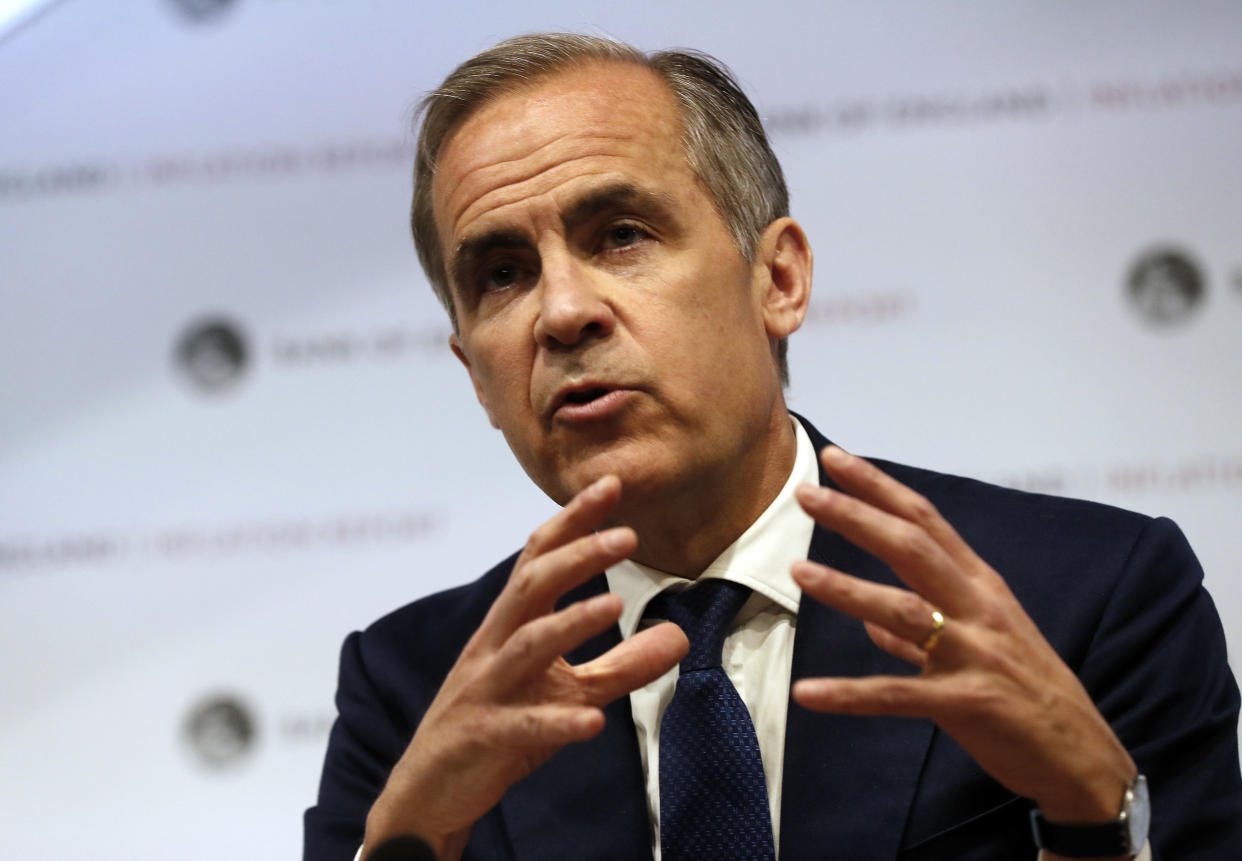Every UK household is £900 a year worse off because of Brexit, says Mark Carney

British households are £900 worse off because of Brexit, the governor of the Bank of England has said.
Mark Carney told a Treasury select committee on Tuesday that household incomes were significantly lower than expected.
He said: “Real household incomes are about £900 per household lower than we forecast in May of 2016, which is a lot of money.”
Mr Carney was comparing the current financial reality to predictions made before the referendum based on the notion that the UK would vote to remain within the European Union.
He also said the economy was 2% smaller than predicted before the EU referendum two years ago.
Bank of England governor Mark Carney tells the Treasury Select Committee that Brexit means real household incomes are about £900 lower than forecast in May 2016, "which is a lot of money"
— Clodagh Rice (@ClodaghLRice) May 22, 2018
MOST POPULAR TODAY ON YAHOO
Sir Elton John’s reaction to Pastor Michael Curry’s Royal Wedding sermon is priceless
Amazing moment Aer Lingus jet flew over crowds gathering at Windsor for Royal Wedding
One expensive crash! Two supercars worth combined £300k in horror smash
Man dies in Tesco Express in Oldham after ‘threats were made to supermarket staff’
Meanwhile, Mr Carney weighed into the debate on business rates, saying it has become a “real issue” for retailers across the country.
Asked by MPs whether the tax on business properties was having a notable effect on UK firms, he said: “The short answer is yes – yes, it’s a real issue.
“It’s one of those issues that is guaranteed to come up in every visit to business regional roundtable(s).”

The high street has come under strain from a combination of rising rents, business rates and labour costs, at a time when discretionary spending have come under pressure.
It has already led to the administrations of the likes of Maplin and Toys R Us, while Byron, Prezzo and Jamie’s Italian, New Look, Mothercare and Carpetright have all shut stores.
Mr Carney said: “We should start by acknowledging that this country has the most competitive and in many respects the most innovative retail sectors in the world and part of the consequence of that is… consumers are well served, margins in the sector are very tight, and births and deaths of firms – even historic names – are frequent.”
However, he said he expects household spending to rise as wages pick up.
“But the pace of consumption growth in our forecast is one half the rate that consumption was growing prior to the (Brexit) referendum, and one third the rate that consumption was growing prior to the financial crisis – so it’s just a different order of magnitude,” he added.

 Yahoo News
Yahoo News 

